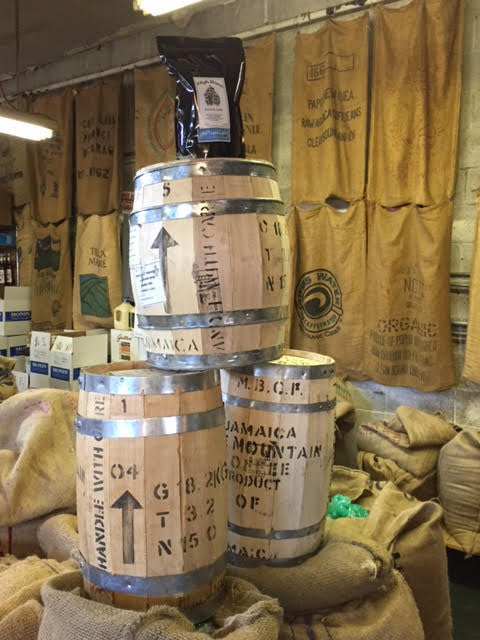Why is Jamaica Blue Mountain Coffee SO expensive?

Not all Jamaican coffee is created equal. Many of the coffees found in lowland Jamaica are sold cheaply and are mostly used as fillers in cheap blends. The highland coffees of Jamaica, all grown above 3,000 feet in elevation, on the other hand, rank among some of the world’s most distinguished and highly celebrated coffees, with Jamaica Blue Mountain being the world’s most expensive, and most controversial.
Generally, in the coffee growing world, the higher the growing altitude, the harder the bean; the harder the coffee bean, the higher the quality. In regard to Jamaica Blue Mountain coffee, not only are the beans hard, and thus high quality, the high altitude and steep grade of the Blue Mountain growing region make this coffee difficult- and expensive- to harvest. The expense of the harvest, coupled with the high demand for Blue Mountain coffee in both the American and Japanese markets keep the cost of Jamaican Blue Mountain high. Unfortunately, due to it's high retail price, many people, in one way or another have tried to profit from the extraordinary price demanded for Blue Mountain.
Today, responsible roasters designate only estate-produced coffees grown at over 3,000 feet, in the Blue Mountain district of Jamaica, as being authentic Blue Mountain coffee. Less admirable retailers will attempt to pass off “Blue Mountain Style” Coffee or “Jamaica Blue Mountain Blends” as THE Jamaica Blue Mountain Coffee. While these coffees may have some of the flavor characteristics of Blue Mountain coffee, they usually contain only a small amount of actual Blue Mountain beans, if any at all. In addition, buyers should be skeptical in regard to coffees labeled Jamaican High Mountain. The High Mountain designation generally describes cheap Jamaican coffees that are grown at lower elevations on other parts of the island. High Mountain is not the same as Blue Mountain.
Our Jamaica Blue Mountain Coffee is sourced from family-owned farms located near the Saint Andrew parish, nestled in the Grand Ridge of the Blue Mountains, Jamaica and grown at approx. 3200 ft. in elevation. Coffee produced in the Jamaican Blue Mountains has a protected designation of origin (PDO) because of the renowned reputation of Blue Mountain coffee. Coffee is intercropped with banana, Inga, mango and many other shade trees. The Clydesdale wet-mill is the most modern in Jamaica with technology to recycle and treat water before returning it to the environment. The dry mill, located in an economically underprivileged part of Kingston, employees over 600 women to hand sort coffee. In addition to the social impact from stable employment, funds are also invested in projects to support over 30 schools. Notably, 80% of Jamaican Blue Mountain gets sold into the Japanese market.